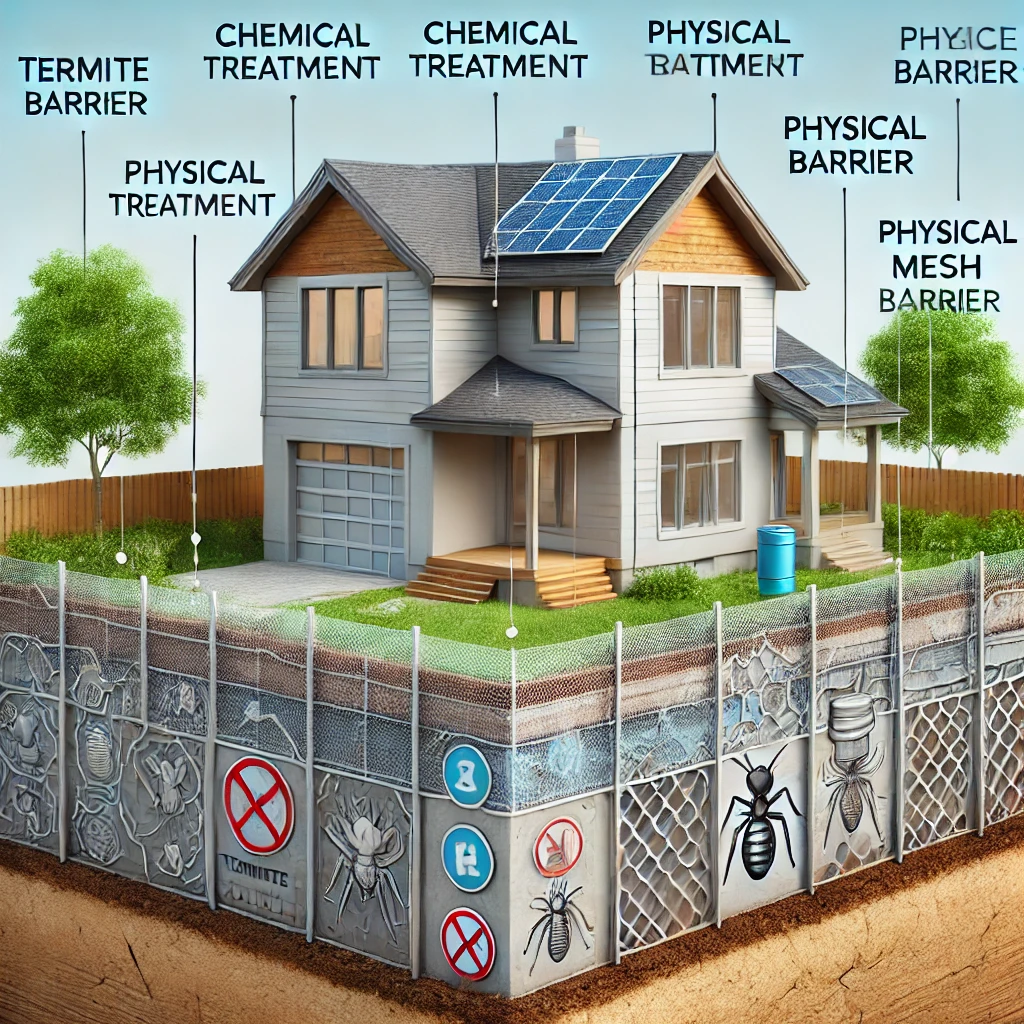
Termites are a hidden threat that can silently destroy homes and businesses. Many property owners in Jimboomba are unaware of their termite protection status, leaving their investments vulnerable to costly damage.
A termite barrier is one of the most effective ways to prevent infestations, but how do you know if your property has one in place? Understanding termite protection and scheduling regular inspections can save homeowners thousands in repair costs. Reliance Pest Control Jimboomba specializes in termite detection and prevention, ensuring properties stay safe from these destructive pests.
A termite barrier is a protective system designed to prevent termites from accessing a building. These barriers can be physical or chemical, providing long-term protection when properly maintained.
Without a reliable barrier, termites can enter homes undetected, causing extensive structural damage that may take years to notice. Investing in termite protection is crucial for homeowners and business owners in Jimboomba.
If you’re unsure whether your home has a termite barrier, here are some ways to check:
Reliance Pest Control Jimboomba can help you identify existing termite barriers and recommend necessary reinforcements.
There are two main types of termite barriers:
Both methods are effective, but they require regular maintenance to ensure continued protection.
The lifespan of a termite barrier depends on the type and maintenance:
Regular inspections are necessary to ensure barriers remain effective over time.
Even if your property has a termite barrier, it may no longer be effective due to:
Scheduling an inspection with Reliance Pest Control Jimboomba can detect and resolve these vulnerabilities before termites invade.
If you discover your property doesn’t have a termite barrier, it’s essential to take immediate action. Options include:
Reliance Pest Control Jimboomba offers tailored solutions to safeguard your property from termites.
To ensure long-term termite protection, follow these maintenance tips:
Preventative maintenance is key to keeping your home termite-free.
Certain properties are more vulnerable to termite attacks, including:
If your property falls into any of these categories, a professional termite inspection is highly recommended.
While termites are not known to transmit diseases to humans, their presence can still have significant health implications. A severe infestation can contribute to poor indoor air quality, as termite activity often leads to increased moisture levels, promoting mould and mildew growth. This can trigger allergies, respiratory issues, and exacerbate conditions like asthma. Additionally, termites produce fine wood dust as they chew through structures, which can become airborne and irritate the eyes, skin, and respiratory system. Protecting your home with a termite barrier not only safeguards your property but also helps maintain a healthier living environment.
In a previous article, we highlighted why pre-purchase pest inspections are crucial for home buyers. Ensuring a property is termite-free before purchasing can save thousands in unexpected repair costs.
If you missed that article, you can check it out here to learn more about protecting your investment.
Now that you understand how to check for a termite barrier, the next step is identifying signs of termite activity before serious damage occurs. In our upcoming article, we’ll cover:
Stay tuned for expert insights on keeping your home termite-free for years to come.
If you’re unsure whether your property has a termite barrier, don’t take the risk. Book a professional termite inspection with Reliance Pest Control Jimboomba today and protect your home before it’s too late.
📍 Stay updated on termite prevention tips! Follow us on Reliance Pest Control Jimboomba’s Facebook Page for expert advice and special offers.
